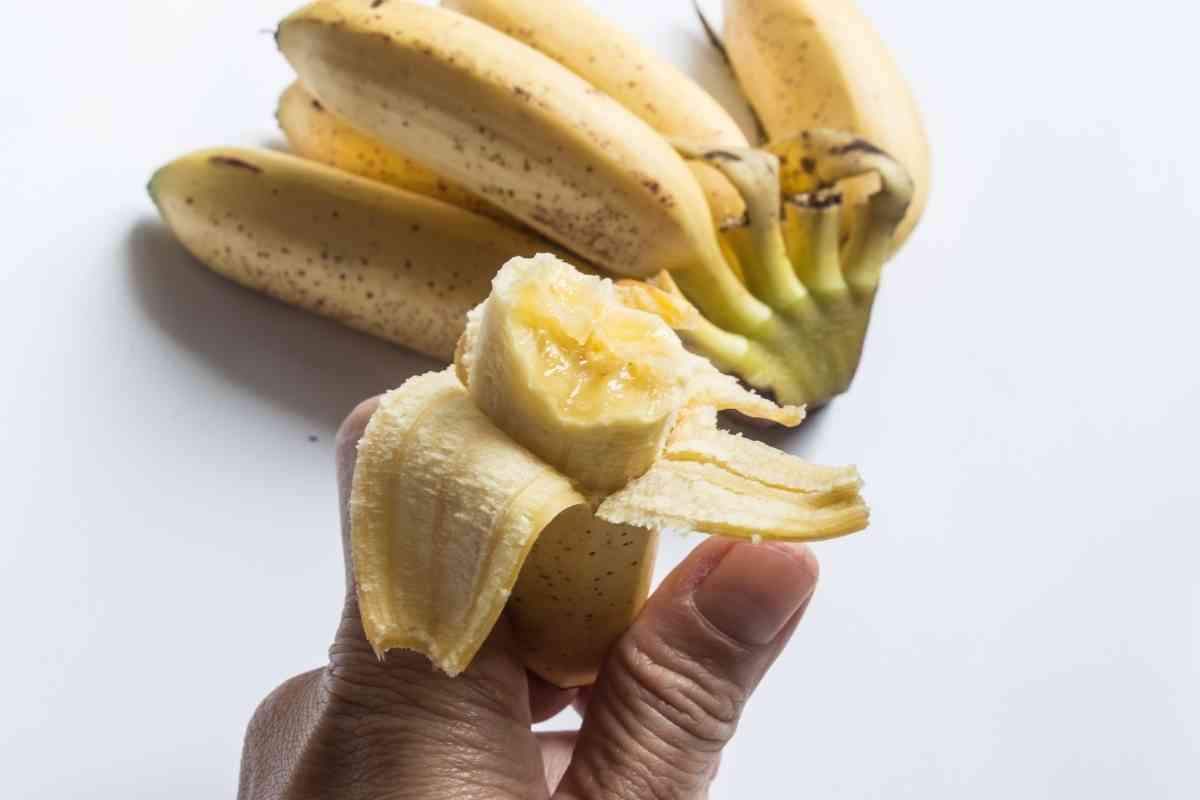Many factors determine the taste of bananas. In particular, the ratios and intensities of nonvolatile chemicals, notably sugars and acids, influence banana flavor.
Volatile molecules that produce fruit fragrances are sensed by over 650 different types of olfactory nerve endings in the nose.
Although taste is subjective, it is a popular reason why consumers choose organic bananas.
So, why do healthy fruits (organically produced) always taste better when compared to other conventionally grown?
Organic bananas taste better for a variety of reasons.
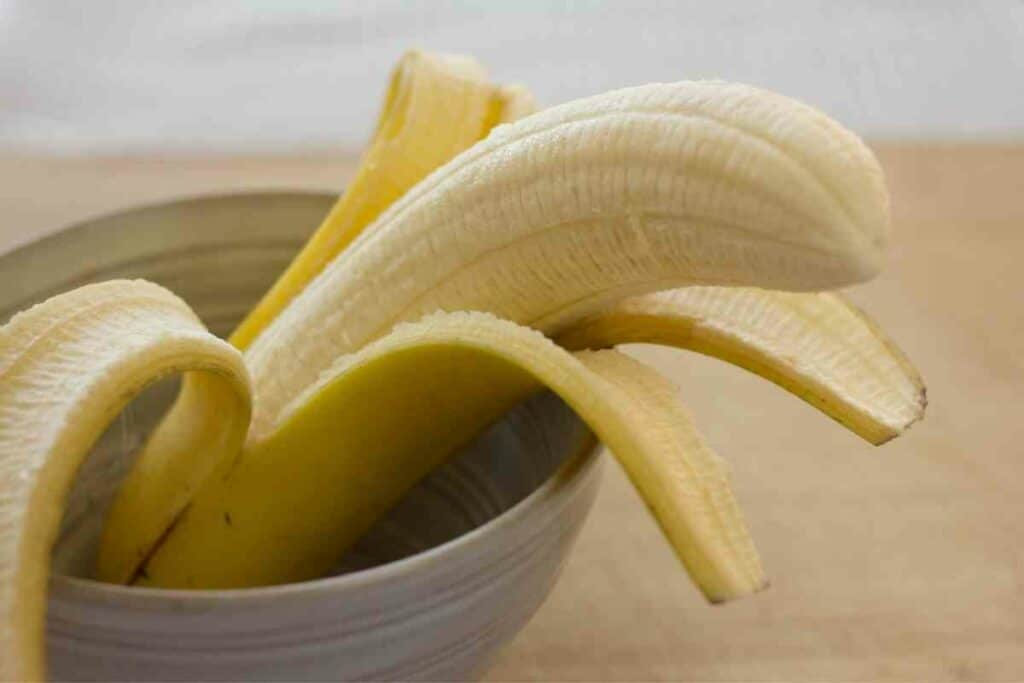
Organic agriculture is supervised by strict government laws that require goods labeled as ‘organic’ to be produced free of synthetic nitrogen fertilizers, antibiotics, genetic engineering or other banned methods, synthetic hormones, persistent and hazardous pesticides.
The absence of these poisonous chemicals and techniques allows the banana tastes to develop more naturally, increasing the quantity and composition of sugar in the banana and, therefore, boosting the fruit’s sweetness.
How Organic Bananas Get Their Amazing Taste?
Healthy Soil
Non-organic foods are treated with very harmful chemicals that destroy everything but the crop.
This includes the living organisms that enrich the soil with nutrients that a plant requires to develop.
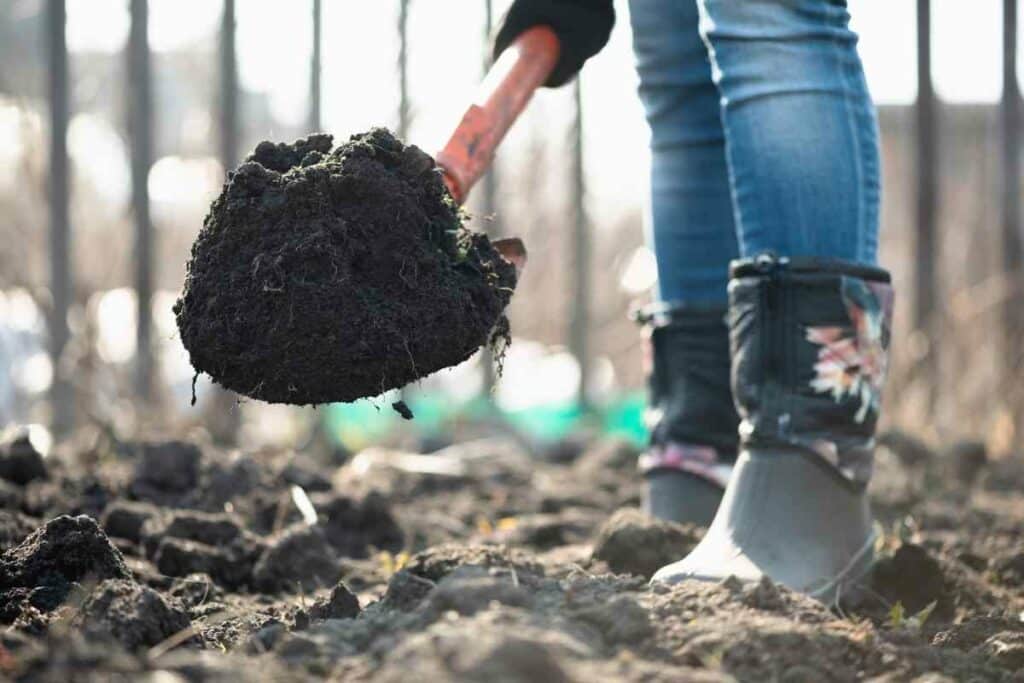
This strains the plant, causing it to dig deeper for the nutrients it needs, preventing it from directing that energy into the growth of its fruit.
The flavor of a stressed non-organic banana will not be as good as that of an organic banana produced with ease.
The farmers concentrate on keeping good soil so that the plants may entirely rely on the natural nutrients provided by the earth.
Unsurprisingly: The nutrients in the soil affect the nutritional levels of the organic bananas they produce, which significantly impacts their flavor.
No Pesticides Used
Pesticides for plant protection are now widely used by food producers and household consumers.
But do you know how pesticides affect the flavor of fruits?
Because pesticides are not used to protect organic fruits, they are continually attacked by pests and blights.
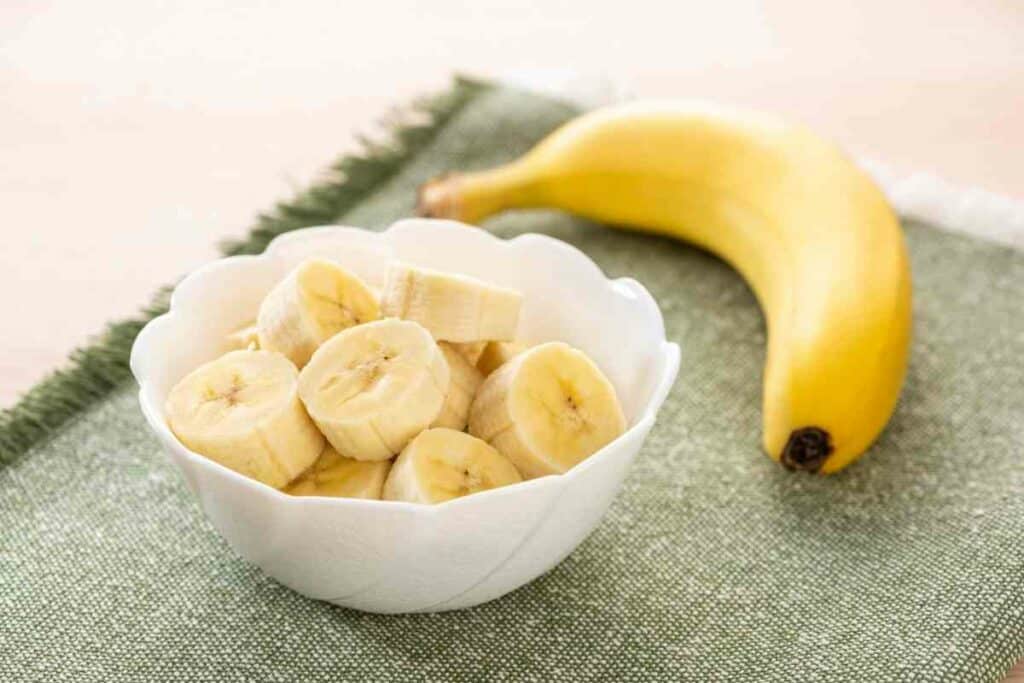
This would appear to be a bad thing, but it isn’t. When plants are attacked, they produce more of their chemical defenses.
This can include creating an odor that attracts counter-attacking bugs such as wasps and caterpillars.
This means making something harmful or unpleasant to these insects or synthesizing an anti-fungal chemical.
Organic plants that insects attack might develop higher taste compounds and other defensive molecules, including antioxidants, because pesticides do not protect them.
These defenses convert straight into flavor and scent for humans.
Ripening Process
Ripening is how bananas attain their desirable flavor, color, quality, and other textural properties.
During the process:
- Bananas release small amounts of ethylene, carbon dioxide, and volatile esters by themselves.
- To increase the speed of the ripening process inorganic farmers, apply ethylene artificially.
On the other hand, organic farmers have no choice but to rely on the small amounts of ethylene produced by bananas.
When these ethylene levels are adjusted artificially, it changes how they normally ripen, which upsets the natural ripening process. This affects the nutrient levels, which influences the taste of the final ripened banana.
Furthermore, sugar levels in chemically ripened bananas are significantly lower than those found in naturally ripened bananas.
This causes chemically ripened bananas not to be as sweet or delicious when compared to naturally ripened bananas.
Only Natural Fertilizers
Organic farming is an agricultural practice that employs natural fertilizers such as compost and manures derived from animal or plant waste.
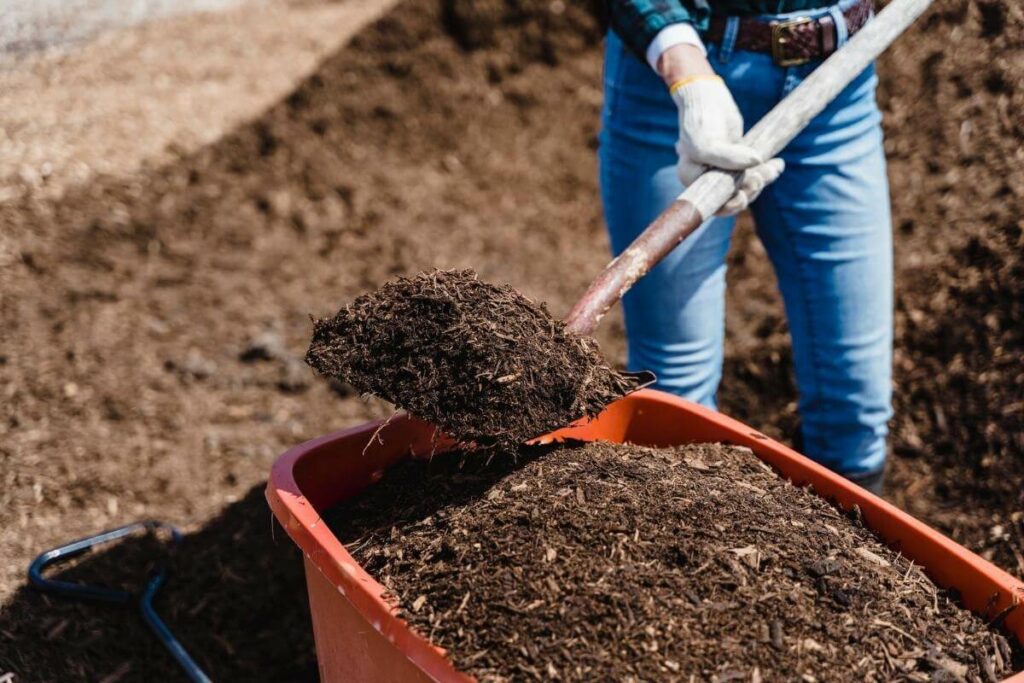
These fertilizers have more nutritional availability than synthetic ones derived from hazardous chemicals.
In other terms, organic farming is an agricultural system that restores, maintains, and enhances the ecological balance.
These natural fertilizers may affect the concentration of sugars and other chemicals in organic bananas, altering their flavor.
No Preservatives
Taste is subjective, but organic bananas are more likely to have a fresher flavor since they don’t include artificial preservatives.
Therefore, while their shelf life is limited, customers receive a fresher, better-tasting banana.
Encourages Pollinators
Organic farming benefits pollinators because it employs healthy growth techniques to preserve the required degree of biodiversity.
Furthermore, herbicides and pesticides do not distinguish between good and harmful bugs; they kill all of them.
Bananas get their distinct aroma and flavor from an organic component known as isoamyl acetate.
Surprisingly, a small quantity of this chemical is created by bee stings.
No Growth Hormones Used
Organic food grows more slowly and is not exposed to nitric fertilizer, which accelerates growth.
As a result, tastes may emerge more naturally.
In general, when the fruit ripens and grows sweeter, amylase converts the starch in the fruit into sugar.
For a superior flavor, the fruit must be given ample time to convert more starch to sugar; as a result, the sugar becomes more concentrated, making the banana sweeter.
Size
Organic bananas are often smaller in size than inorganic foods.
Because the plants must deal with more problems from natural insect predators and diseases, therefore, they produce more defensive chemicals.
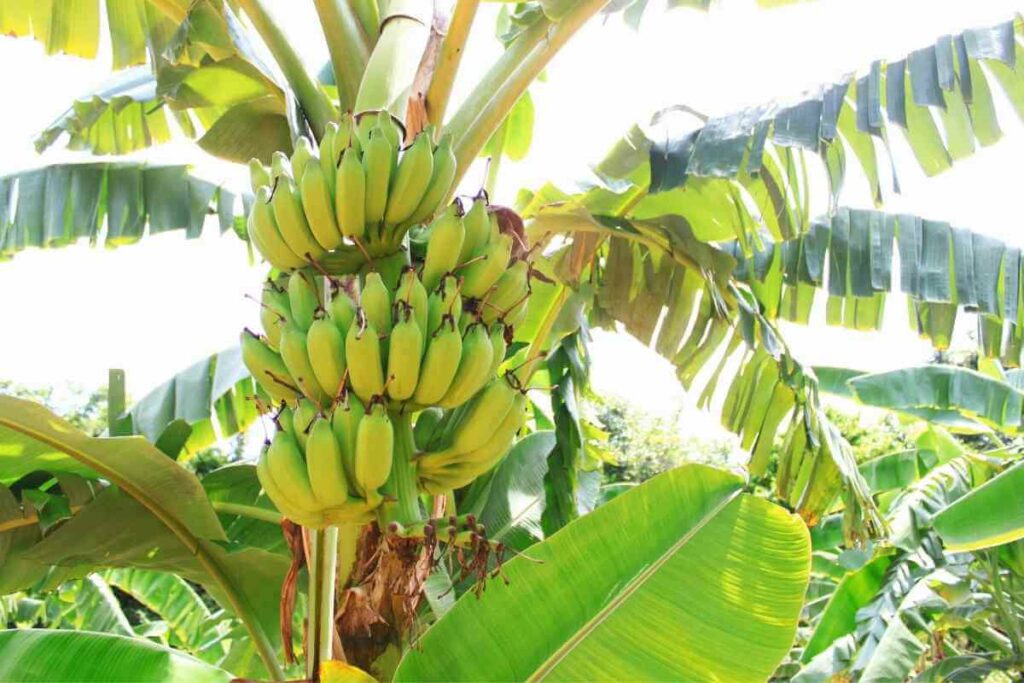
Furthermore, inorganic bananas are grown with chemical salts such as calcium carbide and oxytocin that are dissolved in water.
They are purportedly utilized in fruit for artificial ripening and fruit enlargement.
The bananas absorb these nutrients; therefore, they inflate as a result of the salts.
Organic bananas may be smaller and less attractive than inorganic bananas, but looks may be misleading. Bigger isn’t necessarily better – A reduction in fruit size usually leads to an increase in taste.
Crop Load Management
Crop yield is an essential component in determining the amount of crop produced over a farming year.
Because of the importance of preserving good nutritional soil, organic farming practices limit having many crops.
It does not seek to grow crops to enhance their amount in a short period.
However, it concentrates on generating sustainable field crop farming, which is critical for a healthy and environmentally friendly atmosphere to develop tasty, nutritious vitamin and mineral-enriched yield food crops for customers.
Banana trees with lower crop burdens provide more delicious bananas.
This is primarily due to increased aroma volatiles and sugars in banana fruit with reduced crop load.
Trying to maximize yield frequently works against taste development.
Water Content
Because organic fruit has more dry matter and less water, there isn’t much extra liquid in organic bananas.
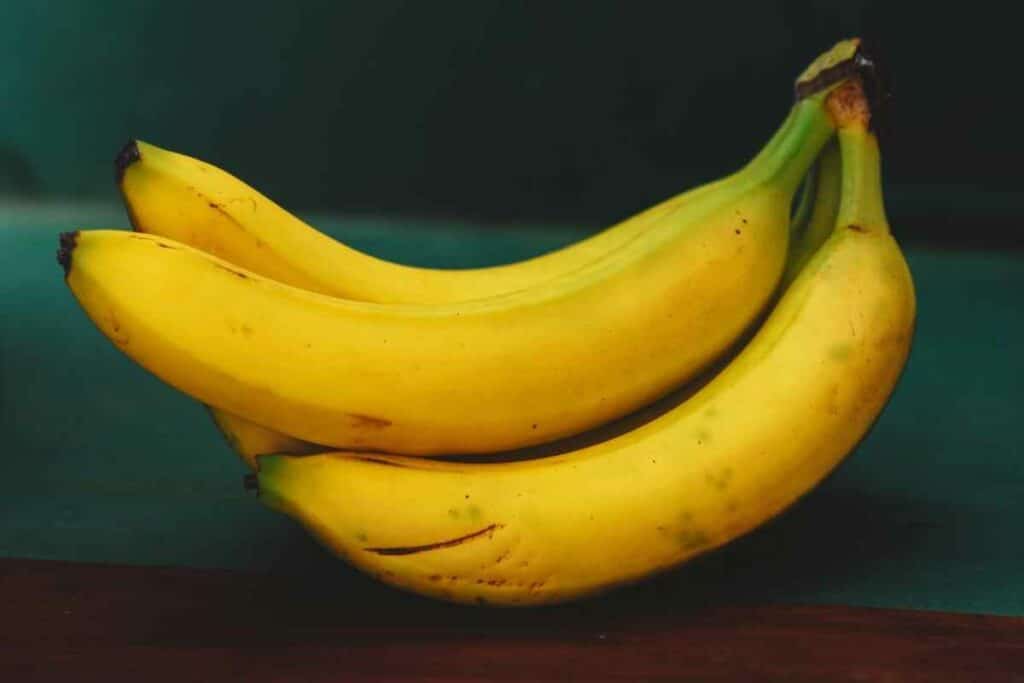
Therefore, the cell contents that splurged out due to the cell walls’ disintegration generally stay within the banana pulp.
Because there is no water to dilute their flavor, water loss promotes a more fantastic taste than a ‘regular’ banana.
As a Result: You get a more flavorful taste when you buy organic bananas.
More Nutrient Content
When fruit is tastier than other fruits of its kind, it is often an indication of better ripening, which is generally a sign of superior nutrition in comparison to other fruits.
Organic bananas are more nutritious than non-organic bananas because they come directly from healthy, rich, organic earth.
Organic Bananas Are Typically Not Monocropped
Because organic farming promotes soil fertility, intercropping is mainly a good cropping strategy.
Soil is a living organism that is home to hundreds of different types of bacteria.
When a farmer uses intercropping, they increase the number of living organisms in the soil, hence reducing the need for chemical/fertilizer treatment and reducing disease susceptibility.
In other words, the role of organic farming is to restore soil fertility without the use of chemicals.
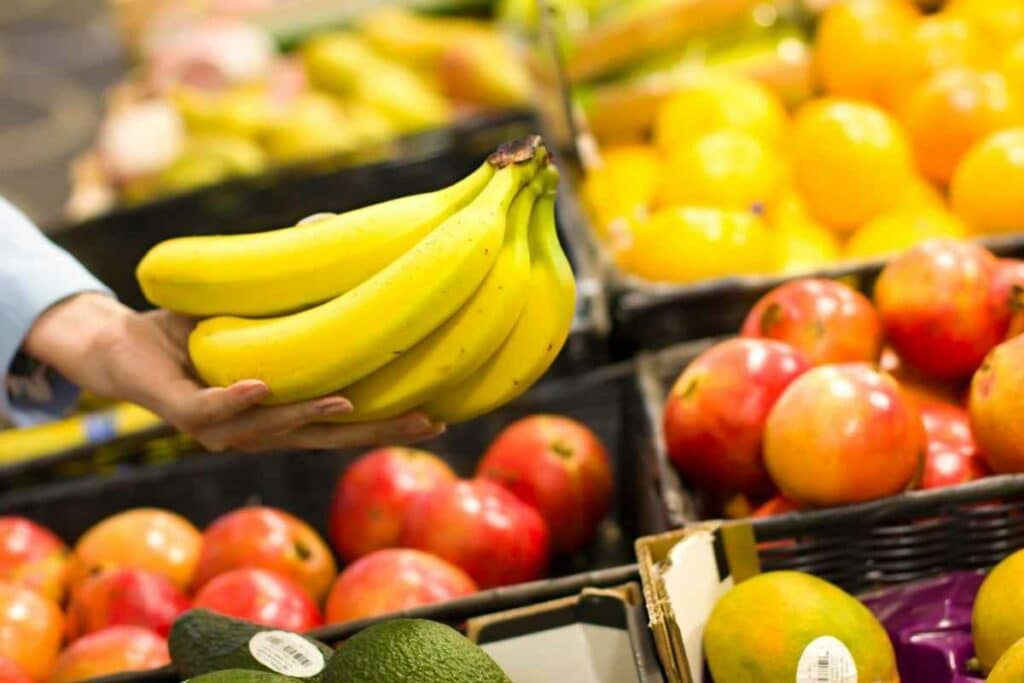
This results in a thriving colony of soil microbes: which eventually translates into you experiencing something more delightful than a banana cultivated in depleted soil with chemicals.
The more life there is in the soil, the greater the potential for taste development.
Final Thoughts
It all starts with farming practices; organic farmers recognize that what goes into the soil significantly influences what comes out of it.
They understand that doing so supplies the nutrients that plants require to develop.
Furthermore, it promotes the absorption of major micronutrients such as Vitamin C, resulting in a higher nutritional content and, in many cases, a better taste crop.
Many people say that organic bananas are excessively pricey. However, it all comes down to personal preference.
Organic bananas regularly taste better and have no artificial false tastes, allowing the fruit’s natural flavor to show through.
